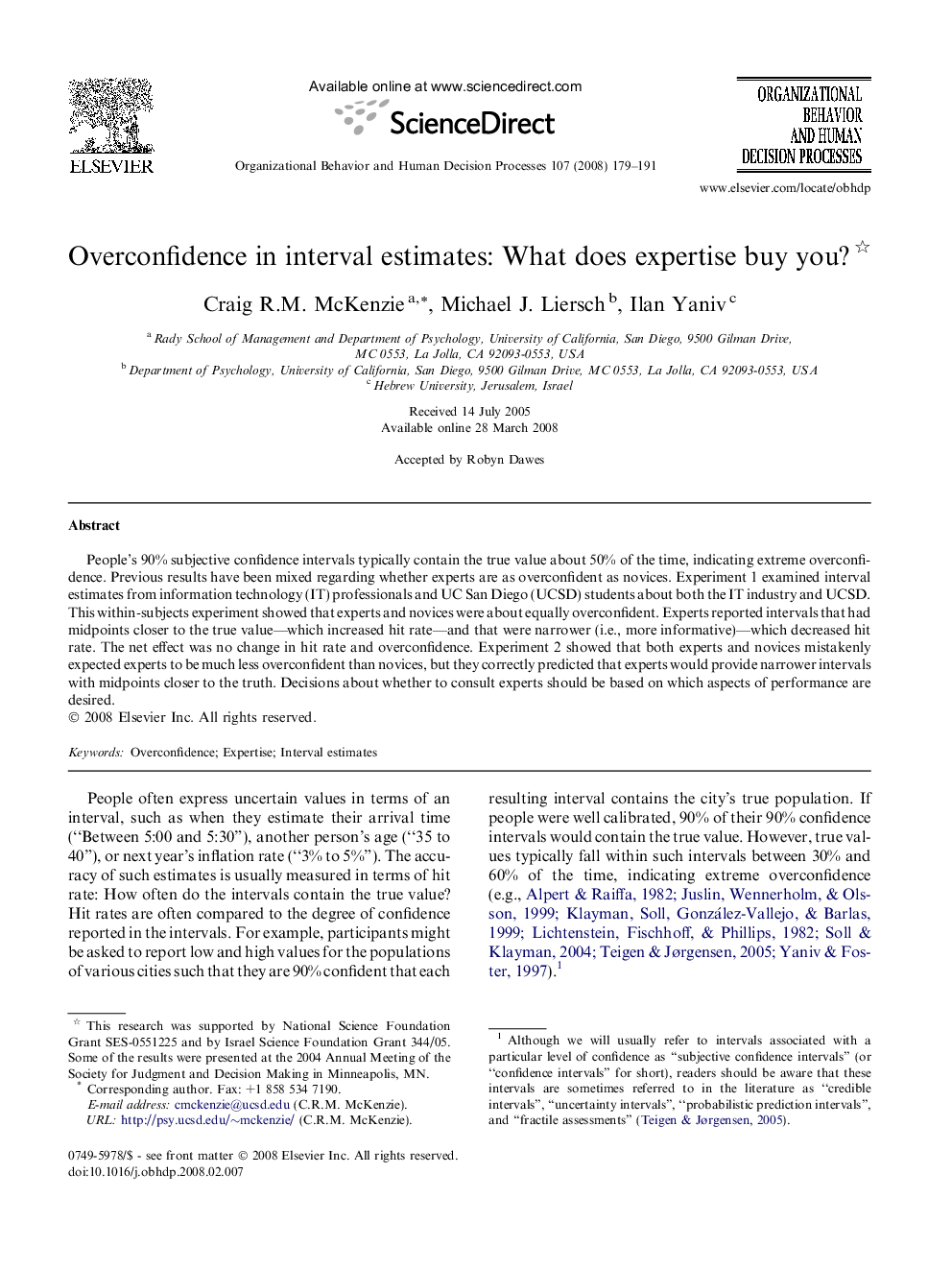| Article ID | Journal | Published Year | Pages | File Type |
|---|---|---|---|---|
| 888915 | Organizational Behavior and Human Decision Processes | 2008 | 13 Pages |
People’s 90% subjective confidence intervals typically contain the true value about 50% of the time, indicating extreme overconfidence. Previous results have been mixed regarding whether experts are as overconfident as novices. Experiment 1 examined interval estimates from information technology (IT) professionals and UC San Diego (UCSD) students about both the IT industry and UCSD. This within-subjects experiment showed that experts and novices were about equally overconfident. Experts reported intervals that had midpoints closer to the true value—which increased hit rate—and that were narrower (i.e., more informative)—which decreased hit rate. The net effect was no change in hit rate and overconfidence. Experiment 2 showed that both experts and novices mistakenly expected experts to be much less overconfident than novices, but they correctly predicted that experts would provide narrower intervals with midpoints closer to the truth. Decisions about whether to consult experts should be based on which aspects of performance are desired.
